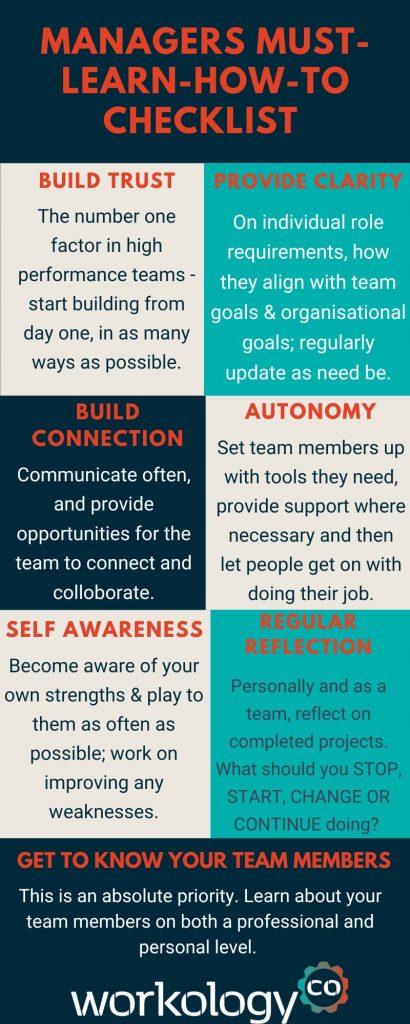As with most generalisations, where there’s smoke there’s at least some fire (yes, I’m aware I explained an adage with another adage. I’m funky like that )
Gallup tell us
“Managers have a disproportionate impact on organizational outcomes — they influence at least 70% of your employees’ engagement. And teams that have talented managers realize a 48% increase in profitability, a 22% increase in productivity and a 30% increase in employee engagement scores”.
Culture Amp however argue that leaders and learning and development opportunities are more important than managers.
But if there is one truth that has held firm from when I first started working in the Workplace relations / HR space some 25ish years ago, and about which I am very confident we can agree, it is this:
That all too often, people are appointed to the role of manager because of their technical abilities, with little or no thought given to their ability to actually manage their direct reports.
To make this already bad situation worse, in almost every circumstance where this happens, the follow up is that once having been appointed, the new manager is left to flounder in the new role alone. Having been provided with neither training, mentorship or support on how to actually be a manager.
In all honesty, it blows my workplace culture mind that this is even still a thing. And yet a mate told me just today about how on the train last week, she overheard a young woman crying to her boyfriend about the difficulties she was facing in trying to manage a woman 20 years older than her, without any support from her own manager other than “you need to sort it out”.
The fact is that managing people is hard. Or it can be – especially if you are not the right type of person to manage others and/or without training and support.
A close family member of mine was once headhunted from a job she enjoyed in an organisation of like minded souls (including a shared quirky sense of humour), to come and head up a newly created team for a competitor.

I cautioned against this move. In strong terms. Because whilst I had no doubts of *Jane’s professional skills, I truly believed she would struggle to manage others. Due to a combination of factors including extreme introversion, slow to make decisions and a wee bit of a short fuse.
My advice was ignored (boo); short story which you can probably guess the end of – things didn’t go well for Jane in her new role.
Yes, there was zero training provided to Jane on how to be a manager (let alone support), and you won’t be shocked to hear that eventually this negatively impacted Jane’s direct reports as Jane floundered her way through, trying to learn how to be a manager on the fly.
Of course Jane herself did not escape unscathed; it was honestly heartbreaking to see how the negative results of a 360 review, by Jane’s direct reports six months after she commenced, impacted Jane.
Which brings us to the heart of why appointing people as managers, based purely on their technical abilities, without training or support, is so problematic.
The results can be disastrous – both for the individual, like Jane, and for each and everyone of their direct reports.
And whilst I often bang on about the role leaders play in creating a high performance culture, the fact is that it is managers who, in reality, are the ones in the trenches on a daily basis.
Therefore it is arguable IMO that it is managers who are the ones truly responsible for driving culture on a daily basis.
Exhibit A:
The Executive come up with what they believe to be a brilliant new process / procedure *insert applicable alternative here. They draw up the framework, and then they pass it down to frontline managers to implement.
If any of the frontline managers do not agree with the direction/procedure – then how do you think their direct reports will respond to the new procedure?
If you guessed ‘not well’, then I’m right there with you my friend.
And what happens with all that negativity? The risk is that it turns into, at worst, a toxic culture and at the very least, it will clearly not be a high performance culture.
How to help managers become better managers
Ok, so I think we can all agree that there is definite room for improvement in how we choose the people we promote to managers. That however is not the focus of this blog.
Instead, let’s focus on how to upskill and support managers once appointed to the role.
Naturally, given our love of facilitation and training, our starting recommendation is to provide some kind of targeted training for new managers. There are numerous options available in terms of either off the shelf or targeted training, or you could develop your own internal training.
Here’s a nice little infographic I prepared earlier which sets out 8 must-learn-how-to-do’s for manager.

Need more tips on what I like to call Management 101 imperatives? Here are a few of my favourites, complete with bonus links to previously written blogs on these subjects.
Giving and receive feedback, including regular check ins.
Improving your Emotional Intelligence (and why you need to)
Wellbeing -including being on the lookout for signs of burnout.
Acknowledging and appreciating your team members
How to have difficult conversations
Be on constant brilliant jerk alert ie don’t condone any form of inappropriate behaviour, even from your star players.
Quick and easy summary
I get it. There is a lot to unpack in this blog, and the where to begin part may seem a little daunting.
If I can offer one succinct tip (other than – choose managers based on more than their technical abilities!) then it would be this: Think like Simon. The other Simon!
Simon Sinek famously said,
‘Be the Leader you wish you had’.
Exchange ‘leader’ for ‘manager’, and you are well on your way to acing management 101.
If you want to learn more, and/or need help upskilling or coaching your managers, then reach out here and let’s chat. Workology Co is developing, as we speak, our own ‘Get me up to Management 101 speed, Pronto’ training program.
Stay tuned for more details…
